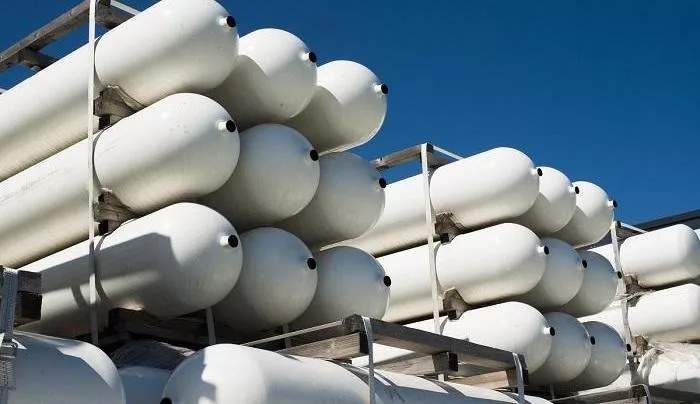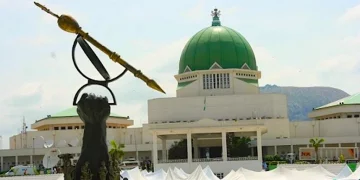Petroleum marketers and other investors in the Compressed Natural Gas (CNG) initiative, popularly known as autogas, have jettisoned their commitment to promoting the project, citing lack of seriousness on the part of the government to fully deregulate the downstream oil and gas industry.
LEADERSHIP investigation also revealed that marketers are having challenges accessing the N250 billion Central Bank of Nigeria intervention fund meant to facilitate the project.
Early this year, the Federal Government’s initial strategy to convert one million vehicles plying the roads in the country to run on gas within a year was moved to three years.
LEADERSHIP reports that in December 2020, President Muhammadu Buhari had promised Nigerians, especially labour leaders, that an autogas policy would ensure that vehicles plying the country’s roads run on CNG.
However, the plan has not worked, but in attempting to reinvigorate the plan, the federal government early this year stated that part of its plans to ensure life is made easier for Nigerians before full removal of subsidy on fuel included the auto-gas plan.
Marketers earlier commended the roll-out of CNG initiative as a key transport fuel as part of the government’s strategy to gradually wean the nation off the high-sulfur petrol it normally runs its cars with.
The government launched its National Gas Expansion Programme (NGEP) focusing on the distribution of autogas (CNG) and liquefied petroleum gas (LPG) across gas stations operated by state energy company, Nigerian National Petroleum Company Limited (NNPCL).
Minister of State for Petroleum Resources, Timipre Sylva, said that discussion has been ongoing with original manufacturers to ensure kits for conversion are available in Nigeria.
While the plan was to convert at least one million cars within a year and fulfill the promise that nothing less than 40 per cent vehicles plying Nigerian roads would run on compressed natural gas, indications have shown that the three years fresh target may have been dashed as investors have shifted their priority elsewhere.
In the different scenarios captured by the government, tricycles, four to six-cylinder cars, eight-cylinder engines and buses could be converted in three years or 36 months. Government anticipated that 200,000, 300,000 and 500,000 cars could be converted in the first, second and third year respectively or 500,000 vehicles would be converted in about 18 months and the other 500,000 within 19 to 36 months.
In the period, 200,000 tricycles were projected to be converted, 610,000 four to six-cylinder engines, 100,000 eight-cylinder SUVs, and 100,000 buses.
The government had noted that CNG was selected as the fuel of choice because it holds a comparative advantage due to its ease of deployment, its comparatively lower capital requirements, commodity’s supply stability, existing in-country volumes and local market commercial structure which relies predominantly on the Naira.
But our correspondent gathered from potential investors that accessing the CBN intervention fund has been a herculean task.
A key industry source said that investing in the project would be a waste of resources as government has continued to lay much emphasis on petrol importation and also driving investment in petrol refinery.
Our source said with much emphasis on Dangote refinery and revival of the country’s four refineries, CNG project appear not to be a priority project.
A presidency source confirmed to our correspondent on phone that the current administration is not advancing or encouraging investment in the CNG space.
“The Minister of state for petroleum resources has made very strong attempts to promote the project but he is highly discouraged by governments lukewarm attitude to the plan,” he said.
Our investigations at NIPCO, the pioneer investor in the project, showed that the company had changed its investment plan targeting gas pipelines to promote its gas utilisation strategy.
NIPCO currently operates a 10 CNG refilling outlet in the country.
Sylva had noted that autogas rollout would provide an alternative to Premium Motor Spirit (PMS).
“We said we must provide alternative fuel and the alternative that we concluded on was the autogas alternative. To provide it for our people. Since this agreement between us (government and marketers), a lot of work has been going on and we have come to a certain point where we need to take it further. But we cannot move further without ensuring that you as our partners are fully on board.”
He further said the government would ensure rapid conversion of vehicles by providing equity participation, encourage credit scheme investments with partner nations and OEMS, create centralised management portals to maintain standards, evaluate utilisation and impact of government equity and overall project.
“The Buhari administration is focused on developing the country’s natural gas resources, as part of the government bid to key into the global shift from crude oil to gas. The plan to develop CNG into alternative automobile fuel was also intended to afford Nigerians cheaper, cleaner and additional fuel.” Sylva said
In a recent report, S&P Global Platts Analytics expects this programme to displace only 10,000 barrels a day b/d of petrol in the near-term, “with the full impact of the conversion scheme to be felt more on a longer time horizon.”
Petrol in Nigeria accounts for a large chunk of Nigeria’s transportation demand.
Nigeria is one of the leading consumers of road fuels in Africa, typically using around 1 million-1.25 million metric tonnes of petrol per month.
Platts Analytics said the success of this programme will depend on the low cost of installation of conversion units, the cost competitiveness of autogas/CNG fuel against gasoline and easy accessibility of refueling stations.
“Since autogas and CNG are price-competitive versus petrol, this could provide a sufficient incentive to kickstart conversion efforts,” it added.
This programme is also part of the government’s policy to drive LPG demand and reduce demand for kerosene and wood as a cooking fuel.
Nigeria depends on imports for almost all its oil products to meet its oil demand of around 450,000 b/d.
Nigeria has four refineries with a combined nameplate capacity of 445,000 b/d but years of neglect have meant they are all offline and set to undergo major repairs.





